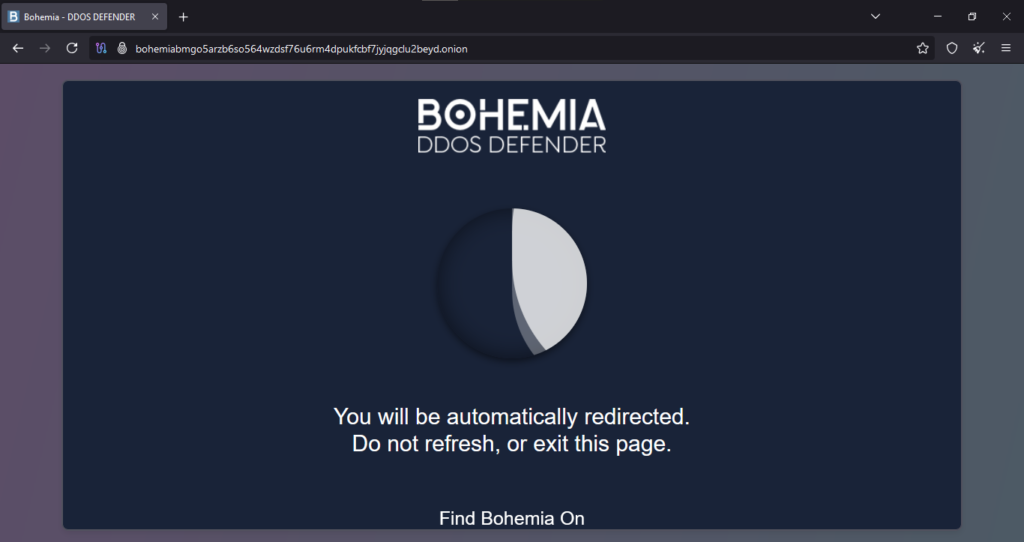Table of Contents
ToggleBohemia Marketplace – TOR Scam Report (145)
Onion Link : http://bohemiabmgo5arzb6so564wzdsf76u6rm4dpukfcbf7jyjqgclu2beyd.onion/
Scam Report Date : 2025-01-30
Client Scam Report Breakdown
Original Scam Report :
According to the original scam report, Bohemia was widely recognized for distributing DDoS-as-a-Service and various strands of malware. This suggests that Bohemia was not only involved in cybercriminal activities but also facilitated the means for others to launch cyberattacks. The report does not specify whether Bohemia operated independently or as part of a larger underground network, but its involvement in malware distribution and DDoS services indicates a structured cybercriminal operation. This is particularly concerning because DDoS attacks (Distributed Denial-of-Service) are often used to disable websites, disrupt business operations, and even extort individuals or organizations by rendering their services inaccessible. Furthermore, malware strains vary in their purpose and functionality, ranging from trojans designed to steal sensitive data to ransomware that encrypts a victim’s files in exchange for payment.
Defining Key Terminology
To better understand the impact of Bohemia’s activities, it is essential to define key terminology used in the scam report. DDoS-as-a-Service is a business model within the cybercriminal world where attackers offer DDoS attack tools or botnets for hire, allowing clients to pay for targeted website disruptions without requiring technical expertise. These services are often marketed on dark web forums and underground marketplaces. Meanwhile, malware is a broad term encompassing any malicious software designed to harm, exploit, or disable computers, networks, or servers. Specific malware strains may include keyloggers (which record keystrokes to steal login credentials), botnets (which hijack computers for coordinated cyberattacks), and spyware (which collects user data without consent). Given Bohemia’s association with these tools, it is likely that its services were leveraged for widespread cyber fraud, financial theft, and other illicit online activities.
Broader Implications and Scam Analysis
The existence of groups like Bohemia highlights the growing threat posed by cybercriminal service providers, which lower the barrier to entry for malicious actors. Unlike traditional hacking, where individuals or groups need specialized skills, cybercrime-as-a-service platforms allow anyone with money to launch sophisticated attacks. This further complicates law enforcement efforts, as these services are often anonymous, decentralized, and protected by cryptocurrency transactions that obscure financial trails. Additionally, malware distribution can have far-reaching consequences beyond direct attacks; infected machines may serve as part of a larger botnet, enabling massive-scale cyberattacks that target corporations, government agencies, or financial institutions. Understanding and exposing operations like Bohemia is critical to disrupting these illegal activities and protecting online infrastructures from persistent threats.






